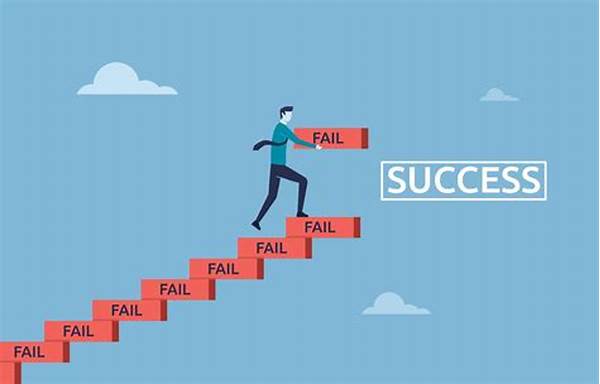In the ever-evolving world of modern work culture, millennials are often hailed as dynamic, adaptable, and tech-savvy agents of change. But beneath this veneer of confidence and capability lies a quieter, more vulnerable narrative—the struggle with impostor syndrome. This silent affliction can strip even the most accomplished individuals of their self-worth, causing them to doubt their abilities despite tangible evidence of their success. How millennials overcome impostor syndrome, then, becomes a question of both personal growth and community support—a narrative of resilience, overcoming, and thriving despite internal adversities.
Read More : Why Confidence Grows Through Failure — Tambakbet Explains
It begins with understanding that impostor syndrome doesn’t discriminate. It affects high achievers across various domains, causing them to question their legitimacy, authenticity, and merit. Millennials, in particular, bear the brunt due to their immersion in a digital landscape where success stories are shared more frequently than challenges. The pressure to measure up to curated versions of success on social media further fuels this syndrome, creating a cycle of self-doubt and anxiety. Yet, what stands out about how millennials overcome impostor syndrome is their collective awakening to the power of conversation and vulnerability.
In a world that often celebrates perfection over authenticity, millennials have begun to redefine success by embracing transparency and imperfection. Their affinity for social media does not only spotlight their triumphs but serves as a platform for shared stories of failure and imposture. Blog posts, podcasts, and hashtags dedicated to spur candid conversations around impostor syndrome are starting to shift perceptions. How millennials overcome impostor syndrome is, therefore, marked by a crucial shift from isolation to community—a realization that they are not alone in their struggles.
The impact of this collective awakening on how millennials overcome impostor syndrome extends to workplace culture. Corporations, now largely populated by millennial workers, are seeing a shift towards more inclusive and supportive environments. Companies are incorporating mental health resources, anonymous feedback systems, and mentorship programs to address impostor feelings head-on. Millennials in leadership positions foster open dialogue about authenticity, ensuring that young professionals see vulnerability as strength rather than weakness.
Strategies to Tackle Impostor Syndrome
As society shifts towards valuing mental health and emotional well-being, how millennials overcome impostor syndrome is emblematic of a larger trend in workplace dynamics and personal growth narratives. This transformative journey involves not just individual actions but also systematic changes that emphasize support, openness, and encouragement, inspiring millennials to continue challenging perceptions and breaking free from the chains of imposture.
—
Introduction to Impostor Syndrome and Millennials
In the bustling scene of contemporary achievement and relentless productivity, lies a thriving discontent—the deep, unsettling feeling of being a fraud in one’s own success. Known as impostor syndrome, this phenomenon is particularly prevalent among millennials who are touted as the “digital natives” heralding change across every imaginable landscape. Their ability to seamlessly adapt to technological advances is often marred by an internal struggle that questions their authenticity. How millennials overcome impostor syndrome then becomes not just a personal question, but one that intertwines with broader societal themes of identity, success, and mental well-being.
Consider a young entrepreneur who, despite numerous accolades and a thriving business, finds herself plagued by doubts about her legitimacy. Her narrative is not uncommon. Research suggests that over 70% of people experience impostor feelings at some point in their lives, with millennials being particularly susceptible due to social media pressures and unrealistic standards set by curated online content. The need for validation and the fear of exposure as a “fraud” can lead to chronic stress and hinder professional and personal growth.
The Roots of Impostor Syndrome
Peeling back the layers, impostor syndrome in millennials often stems from childhood narratives where success equated receiving acknowledgment—a conditioning that carries over into adulthood. Added to this is the comparison culture driven by social media where everyone seems to be achieving “more” or “better”. Millennials, navigating a world of constant information flow, are trapped in a cycle of self-doubt with every scroll, like, and share acting as a silent critic.
Yet, despite the overwhelming odds, how millennials overcome impostor syndrome is marked by remarkable perseverance and a new-age wisdom rooted in vulnerability. As they pivot away from isolation towards community-driven support, millennials are learning the liberating power of open conversations and shared truths. Online forums, peer groups, and social media platforms have turned into sanctuaries of truth where the stigma of impostor syndrome is slowly being eroded through mutual empathy and understanding.
The New Age Millennial Approach
In workplaces, where the millennial presence is increasingly dominant, strategies are shifting. Encouraged by progressive organizational cultures that prioritize mental health, millennials are championing initiatives that drive awareness and support for impostor syndrome. From flexible environments that encourage self-care to leadership that models transparency, the tides are turning. It’s a poignant testament to how millennials overcome impostor syndrome—not by fostering solitude, but by building communities where imperfection is celebrated as much as perfection.
As society begins to comprehend the debilitating effects of impostor syndrome, the millennial approach offers a roadmap of resilience and introspection. A road where shared stories lighten emotional loads and where authentic experiences are woven into the intricate tapestry of personal and professional achievement. How millennials overcome impostor syndrome is ultimately a tribute to their unwavering spirit, transforming adversity into empowerment and doubt into confidence.
—
9 Actions to Combat Impostor Syndrome in Millennials
—
Quick Guide to Impostor Syndrome in Millennials
With the rise of digital narratives, millennials find themselves grappling with a unique set of challenges, chief among them being impostor syndrome—a silent yet potent adversary. For many millennials, the constant comparison to peers on social media can feel like a perpetual cycle of inadequacy. The curated lives showcased by others can make individual accomplishments seem minimized, feeding the internal narrative that one is a ‘fraud’. Yet, embedded in this digital age is a paradoxical solution—community.
Finding Community Strength
Millennials have devised ingenious community-driven methods to combat this pervasive issue. Online forums and social media groups offer safe spaces where shared experiences are not just welcomed but encouraged. These platforms prove instrumental in shining a light on how millennials overcome impostor syndrome by showcasing diverse stories that resonate widely. Here, authenticity is celebrated, and imperfections are seen through the lens of growth rather than inadequacy—a powerful shift that empowers millennials.
Embracing Imperfection
The talk surrounding impostor syndrome and its impact on millennials is slowly transforming into action. Employers are learning from millennial approaches and incorporating more inclusive paradigms. Highlighting mental health and promoting open communication are steps towards creating environments conducive to addressing impostor feelings. By understanding that perfection is a myth, millennials are redefining success as a journey crafted from both their strengths and vulnerabilities.
This resilient spirit encapsulates how millennials overcome impostor syndrome—through a journey that is deeply personal yet shared, arduous yet enlightening, proving that the path to authenticity lies not in combat but in acceptance and community.
—
How Millennials Tackle Impostor Syndrome Through Illustrations
Millennials are pioneering new paths that challenge the very core of impostor syndrome—a narrative that empowers rather than debilitates. From vibrant illustrations that capture the essence of this internal battle, to testimonials of transformation that inspire, they are reshaping the dialogue around authenticity and self-worth. Each creative expression becomes a brick laid down on the road to self-discovery, acknowledging that every imperfection is both a lesson and a feature of one’s unique journey. Through conversation, introspection, and community, millennials inch closer to a reality where impostor syndrome no longer hinders their extraordinary potential.



